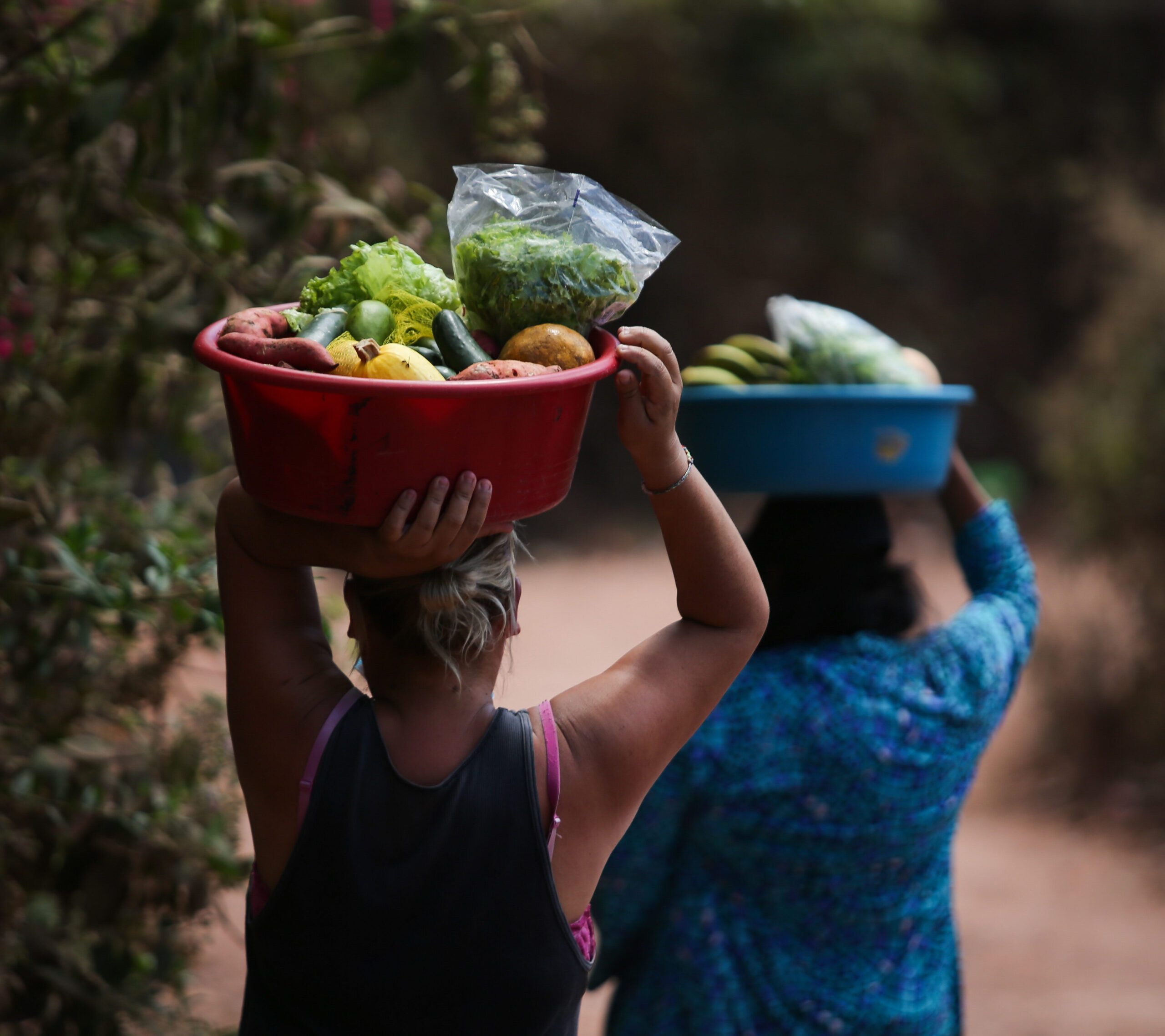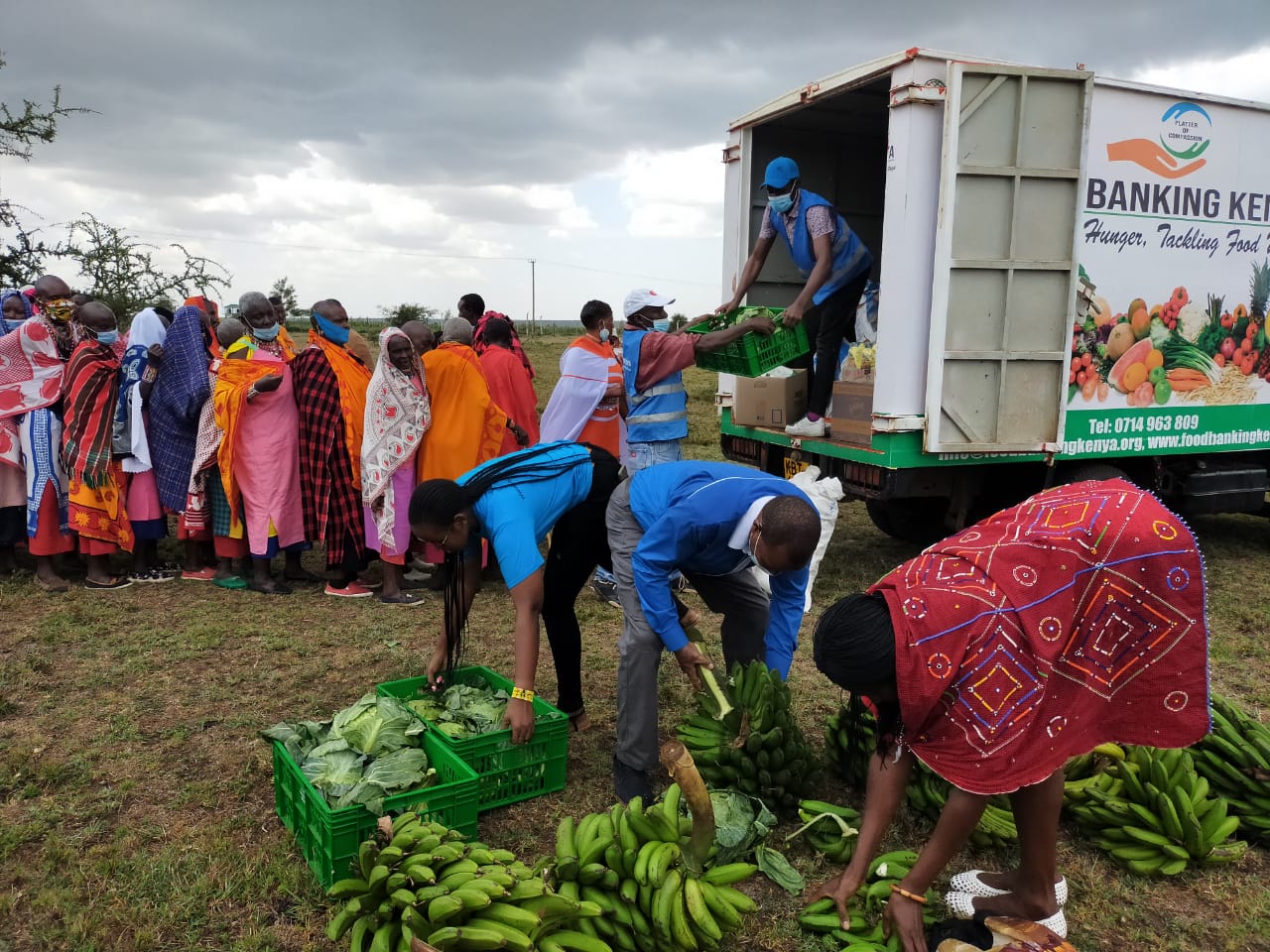In 2019, The Global FoodBanking Network (GFN) started a program designed to accelerate the development of newer food banks in regions where food insecurity is especially acute.
That year, food banks in the program distributed a combined 2.3 million kilograms of food and grocery products to nearly 1.1 million people. Only three years later, in 2022, that same group of food banks connected 18.4 million kilograms of food to more than 10 million people, according to our recently released annual survey of members.
Such incredible strides in such a short time are only possible through the hard work, creativity, and dedication of the food bankers participating in the Food Bank Accelerator Program. The first cohort of Accelerator food banks established in 2019 consisted of six African food banks—in Botswana, Ethiopia, Ghana, Kenya, Madagascar, and Nigeria—and seven Asian food banks—in the Philippines, Thailand, Malaysia, New Zealand, Vietnam, and two food banks in Indonesia.
GFN serves as a multiplier of their ingenuity, providing context-specific technical support, mentoring, peer-to-peer connections, and partnership opportunities that might otherwise be unavailable to young food banks. Since program participants are typically located in places where the food banking model is fairly new and unknown, these services are especially valuable and can also help food banks establish credibility.
“The objective of the Accelerator is to support rapid growth while simultaneously building solid foundations that will enable these food banks to be sustainable and serve their communities for the long term,” said Anthony Kitchen, GFN field & knowledge services senior director.
Peer-to-Peer Learning in Africa
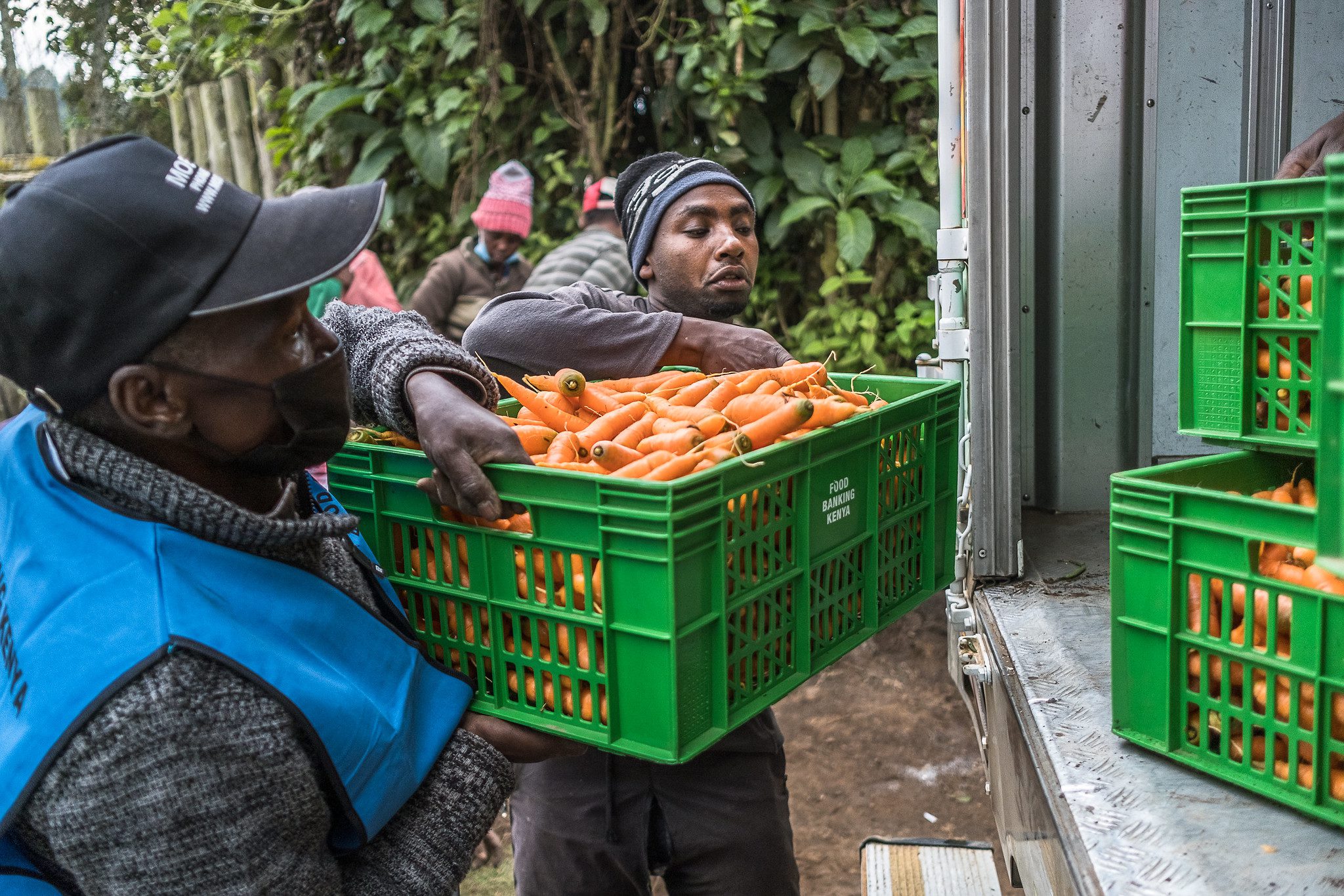
For Food Banking Kenya, participation in the Accelerator Program helped them adjust their food distribution model as the country was confronted with supply chain disruptions at the beginning of the COVID-19 pandemic. GFN connected Food Banking Kenya’s leadership with FoodForward South Africa and Leket Israel, which demonstrated how fresh produce could be collected for community distribution through partnerships with small-scale and commercial farmers, as well as packing houses.
“When we started, we relied so much on dried food,” said John Gathungu, executive director of Food Banking Kenya. “With ideas we got from our peers, from other countries, we realized that we could venture into agricultural recovery. This tremendously improved the number of kilograms we were able to secure, and at the same time the number of people we were able to reach with the food we secured.”
In 2019—the year they joined the Accelerator and three years after their founding—Food Banking Kenya distributed just over 11,000 kilograms of food and grocery products. Last year, they distributed more than 472,000 kilograms, in large part due to their agricultural recovery program.
“Food Banking Kenya is a living testimony of what The Global FoodBanking Network is doing to bring up food banks in Africa,” said Gathungu. “From technical and financial assistance to referrals to donors and partners, I can tell you for sure, without GFN, Food Banking Kenya would not be where we are today.”
Now, Food Banking Kenya is passing their knowledge on to their colleagues at Lagos Food Bank Initiative, another Accelerator participant. Lagos Food Bank’s executive director, Michael Sunbola, visited Kenya during a GFN-convened conference in 2022, and he was introduced to the idea of agricultural recovery there. Then, in 2023, Sunbola saw another such program in action, this time at food bank in Puebla, Mexico, through GFN’s annual Food Bank Leadership Institute Conference. Now Sunbola believes a similar partnership structure with the agricultural sector in Nigeria could make sense for his food bank. Soon, he will be visiting GFN member Leket Israel with colleagues from Accelerator food bank Scholars of Sustenance Thailand to continue his learning journey.
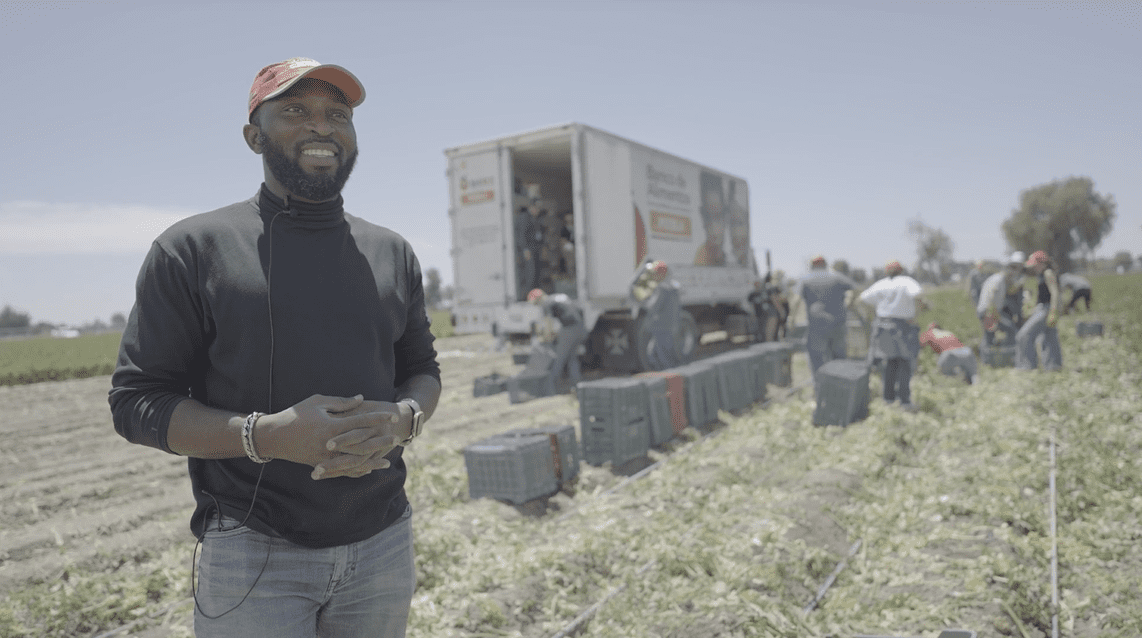
“FBLI really expanded my thinking, my horizon,” said Sunbola, “and [experiences like that] makes us food bankers, food bank leaders, think bigger. Seeing the models from other food bankers who are far ahead of us—their approach, their style, their touch of excellence—gives us that picture that we want so we can implement the kind of future we want to see in Africa.”
Lagos Food Bank is making significant progress in their hunger alleviation efforts already. In 2022, the food bank distributed four times the amount of food when compared to 2019, from 50,000 kilograms to almost 400,000.
“GFN is so important to the work that we do, first, to amplify our work, to build capacity,” Sunbola said. “Between 2018, when GFN found us, and now, we’ve really scaled. We’ve built capacity and personnel as well. Everything has really grown for us.”
Exponential Growth to Respond to Need in Asia
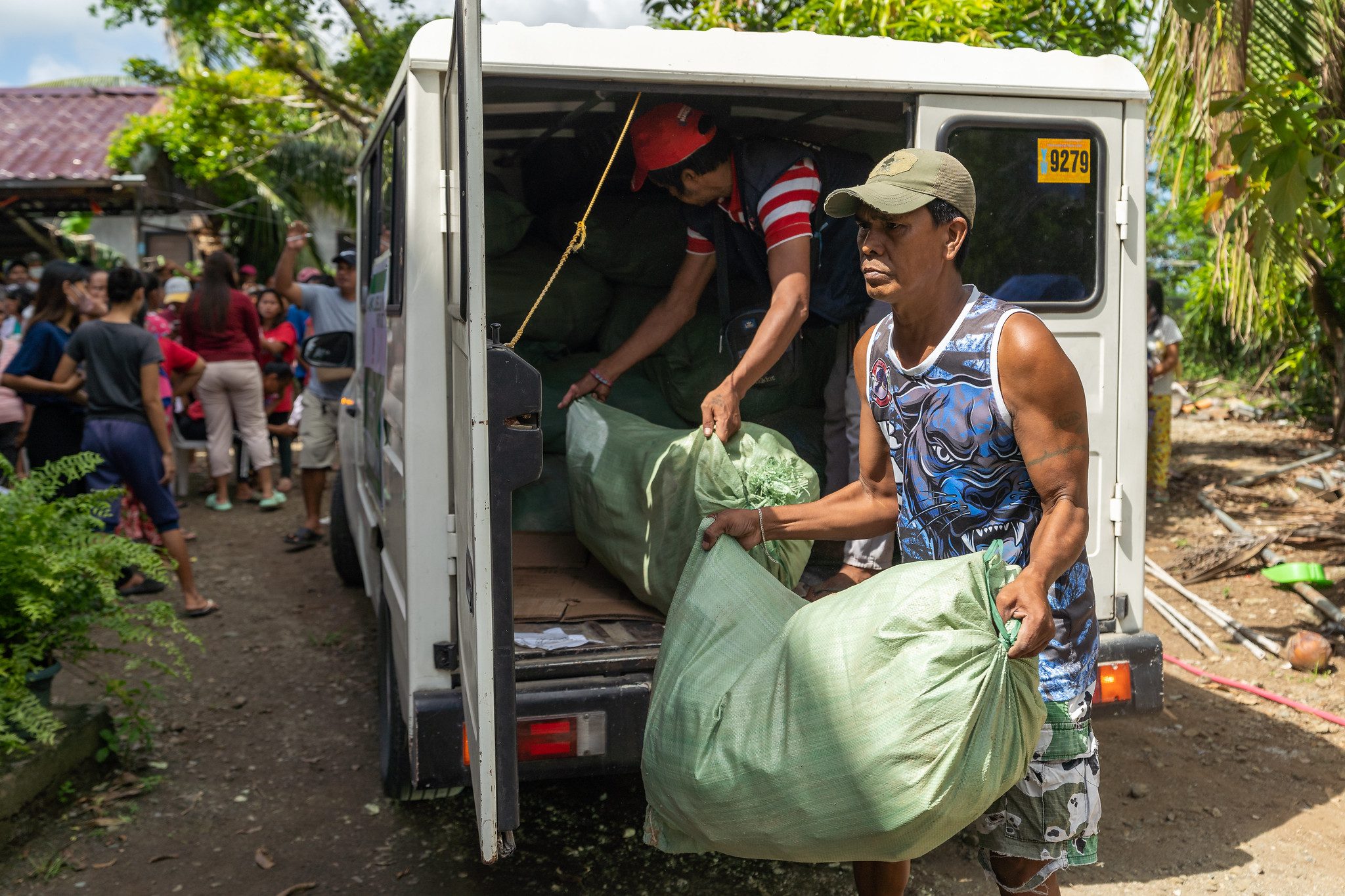
Rise Against Hunger Philippines (RAHP) likewise gives credit to GFN’s Accelerator for supporting their food bank’s growth over the last several years.
“GFN has become one of our biggest supporters,” said Jomar Fleras, executive director of RAHP. “GFN has not only provided us with technical support, but it provided us a lifeline during the pandemic, a lifeline during the crisis.”
An increase in service was a necessary reaction to the increase in demand for food relief related to COVID, cost-of-living increases, and both natural and climate-related disasters in the Philippines.
“I always tell people that the Philippines is like the [front door] of Asia,” Fleras said. “When there’s a typhoon in the Pacific Ocean, it hits the Philippines first. So we get the brunt of the typhoon, and that affects a lot of our agricultural produce. We lose a lot of food, and people suffer.”
Fleras and his team committed to reaching more people in the face of these crises. In 2019, RAHP distributed 20,000 kilograms of food to 225,000 people. Last year, the organization distributed nearly 2 million kilograms of food to 1.6 million people.
Like RAHP and many other food banks around the world, FoodCycle Indonesia (FCI) shifted its approach in response to crises. FCI lost their supply of surplus food due to the pandemic but was able to pivot their approach after receiving a grant and technical support from GFN via the Accelerator Program. These resources allowed FoodCycle to purchase food, secure warehouse space and transportation, and develop a stronger and broader network of partnerships with corporations in a position to support food banks.
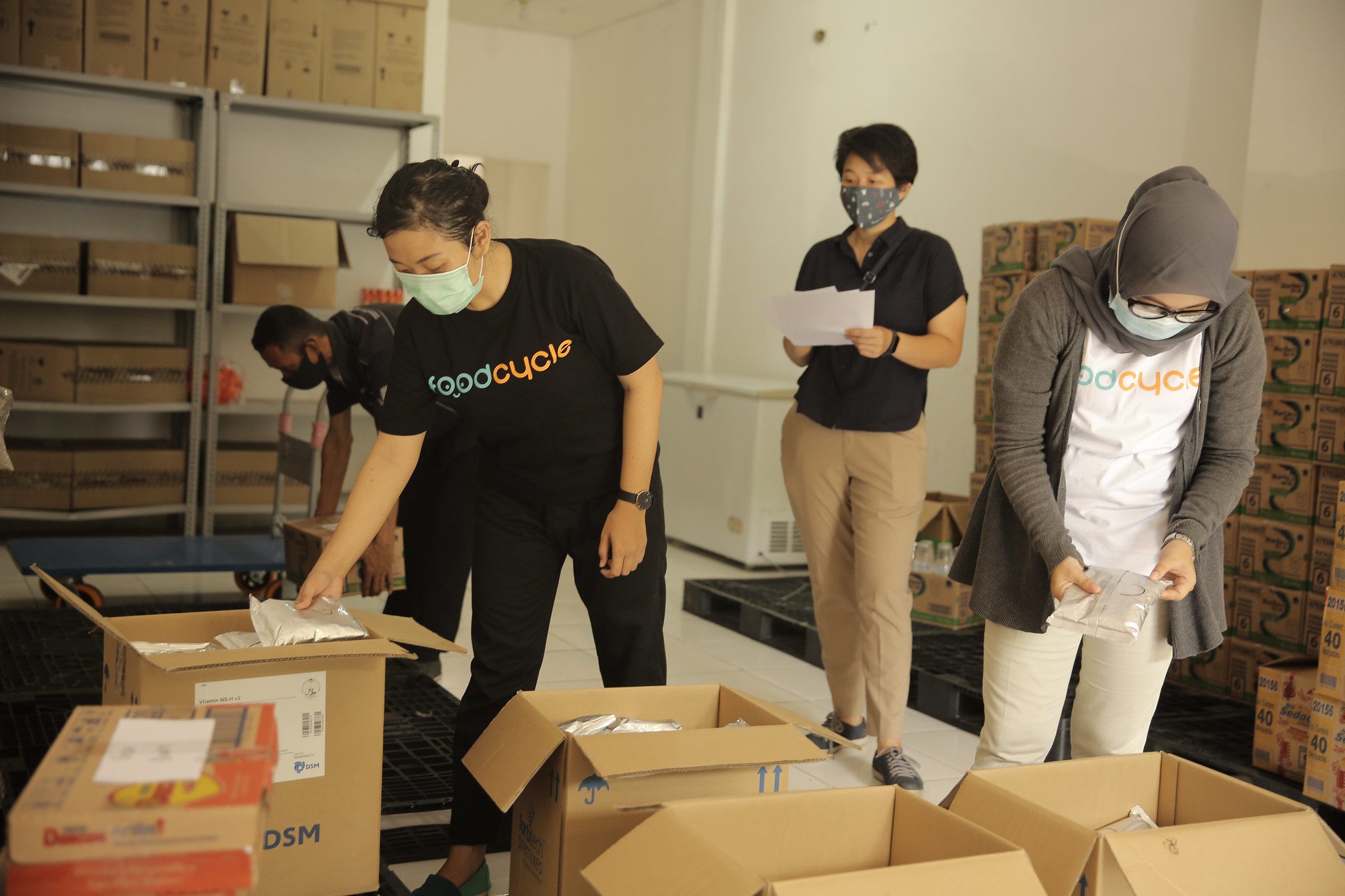
Now, FCI is steadily increasing their capacity to serve their communities. In 2022, they distributed 21% more kilograms of food and reached more than four times the number of people than the previous year. And they established new ways of reaching people facing hunger by establishing a school feeding program and increasing the number of community agencies they partnered with by 46%.
Next Steps for the Accelerator
These members of the Food Bank Accelerator Program and many others have demonstrated incredible growth and development since the program began in 2019. Then, the program was called the Food Bank Incubator Program—but the name changed this year to further differentiate it from a new GFN initiative, the New Food Bank Development (NFBD) Program, which walks local leaders through all the steps necessary to plan and launch a food bank.
Starting this year, NFBD food banks that have launched and found an equilibrium will move into a new cohort of the Accelerator to help them grow. Participating food banks will be placed in one of two tracks, based on their current stage of development, to better accommodate specialized assistance to each organization.
This month, Aksata Pangan in Indonesia, No Hunger Food Bank in Nigeria, and The Lost Food Project in Malaysia will join the Accelerator, with more food banks poised to join later this year.
These food banks, together with the first cohort, will continue to become more efficient and effective in partnership with GFN in the name of better serving communities facing hunger.
“The first cohort of the Incubator Program really embraced being a part of a global movement,” Kitchen said. “They’ve got very committed leadership who are already delivering a lot of change, a lot of growth and making a difference in their regions.
“Overall, I think the program has been very successful so far and provides a really solid position to build on going forward.”

